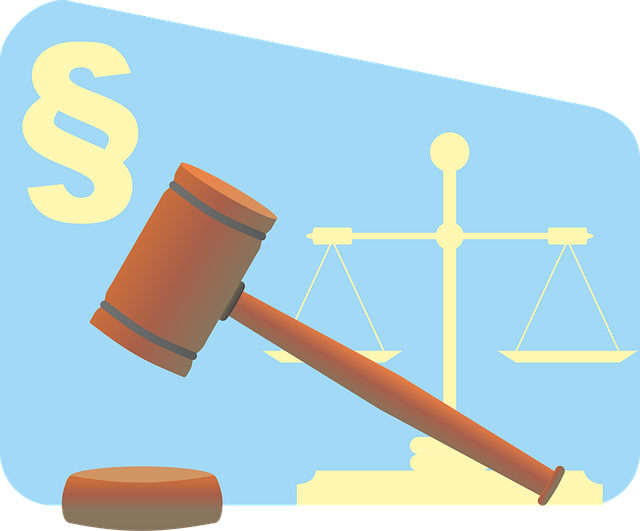Consumer protection laws guard against unfair business practices, with appeal denials often stemming from common mistakes like insufficient evidence, missed deadlines, or misunderstandings of regulations. Businesses must adhere to these laws to avoid legal repercussions. Consumers can protect their rights post-denial by reviewing the reasons, re-presenting their case, and seeking legal representation for complex cases. Understanding Common Reasons for Appeal Denial is key for successful navigation in consumer protection suits.
Consumer protection suits are vital to ensuring businesses uphold ethical practices and safeguard their customers’ rights. This comprehensive guide explores critical aspects of navigating consumer protection laws, from understanding the legislation to post-denial actions. Learn about common mistakes leading to appeal denials, such as procedural errors or inadequate evidence, and discover effective strategies for legal defense. By mastering these insights, businesses can better protect themselves against challenges and ensure compliance.
- Understanding Consumer Protection Laws
- Common Mistakes Leading to Denial
- Evaluating Appeal Eligibility
- Effective Strategies for Legal Defense
- Post-Denial Actions and Rights
Understanding Consumer Protection Laws

Consumer protection laws are designed to safeguard individuals from unfair or deceptive practices in their daily transactions with businesses. These laws cover a wide range of activities, from product quality and pricing transparency to advertising claims and data privacy. Understanding these regulations is crucial for both consumers and businesses alike. Consumers can better protect themselves by knowing their rights, while businesses must ensure they comply to avoid legal repercussions, including potential consumer protection suits.
One common outcome of such cases involves the denial of appeals, often due to violations that fall under the category of white collar and economic crimes. These include fraud, misrepresentation, or failure to disclose material information. Common reasons for appeal denial across the country include not only these criminal acts but also a lack of cooperation with investigations, destruction of relevant evidence, and repeated instances of non-compliance. Businesses must thus be proactive in adhering to consumer protection laws to avoid such outcomes.
Common Mistakes Leading to Denial

Many consumer protection suits face denial due to a range of common mistakes made by plaintiffs or their legal representatives. One of the primary reasons for appeal denials is failure to establish a clear and compelling case. This often stems from vague or insufficient evidence, where the court cannot ascertain the extent of any harm or loss incurred. Additionally, cases may be dismissed if they lack a solid legal foundation, such as misinterpreting applicable laws or regulations.
Another significant factor is the timing of the lawsuit. Consumer protection laws often have strict statutes of limitations, meaning suits must be filed within a specific timeframe after the alleged harm occurred. Missing these deadlines can lead to automatic denial. Furthermore, cases involving complex financial transactions or white-collar crimes require meticulous documentation and understanding of all stages of the investigative and enforcement process. Achieving extraordinary results in such cases necessitates careful strategy, thorough research, and a deep knowledge of relevant legal precedents.
Evaluating Appeal Eligibility

Evaluating Appeal Eligibility plays a pivotal role in Consumer Protection Suits. Understanding the common reasons for appeal denials is crucial for both consumers and businesses alike. Across the country, cases are decided based on strict criteria, with a keen eye on protecting consumer rights while ensuring fairness to respective businesses.
The process involves scrutinizing evidence, legal arguments, and procedural compliance. Previous settlements and an unprecedented track record of successful appeals can strengthen a consumer’s case. However, misunderstandings, insufficient documentation, or missing deadlines often top the list of common reasons for appeal denial. To enhance their chances, consumers should meticulously prepare their appeals, ensuring every detail is accurate and compelling.
Effective Strategies for Legal Defense

In the face of Consumer Protection Suits, a robust legal defense strategy is paramount. One of the first lines of defense involves meticulous documentation and record-keeping. Ensuring that all communications, transactions, and relevant data are properly documented can significantly strengthen a case. Additionally, thorough fact investigation and expert witness testimony can help uncover nuances that might dismiss or mitigate claims. Lawyers should also focus on distinguishing between legitimate business practices and deceptive ones, often relying on industry standards and legal precedents to their client’s advantage.
Another effective strategy is challenging the admissibility of evidence, especially in high-stakes cases involving white collar and economic crimes. Common Reasons for Appeal Denial include procedural errors, inadmissible evidence, and insufficient legal arguments. Legal teams can navigate these complexities by leveraging their knowledge of procedural rules and evidentiary laws. For his clients, this meticulous approach not only strengthens their defense but also ensures that justice is served in the face of challenging consumer protection allegations.
Post-Denial Actions and Rights

After a denial of their appeal, consumers have several avenues to explore for post-denial actions and rights protection. One common step is to review the reasons behind the initial denial, as many rejections stem from typical appeals mistakes like missing deadlines or providing insufficient evidence. Understanding these common reasons for appeal denial can help guide future attempts at revisiting the case.
Consumers with strong evidence supporting their claim and who have followed all procedures correctly may consider navigating all stages of the investigative and enforcement process again, this time with a focus on presenting their case more compellingly. In some cases, an unprecedented track record of successful similar suits can strengthen their position. For complex or high-stakes disputes, seeking legal representation for jury trials becomes a viable option to amplify their voice and fight for justice.
Consumer protection suits are designed to safeguard individuals from unfair practices, but navigating the legal process can be complex. Understanding consumer protection laws, avoiding common mistakes that lead to denial, evaluating appeal eligibility, and employing effective legal defense strategies are crucial steps in ensuring justice. By being aware of potential pitfalls and knowing their rights, consumers can better protect themselves and take appropriate actions after a denial, including exploring Common Reasons for Appeal Denial. This knowledge empowers folks to navigate the intricate landscape of consumer protection effectively.






